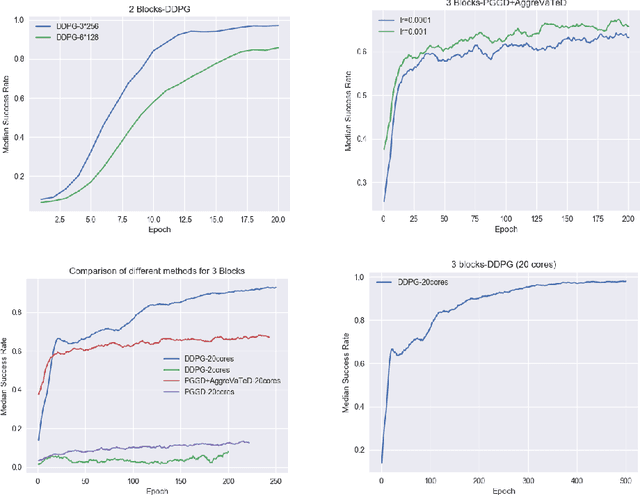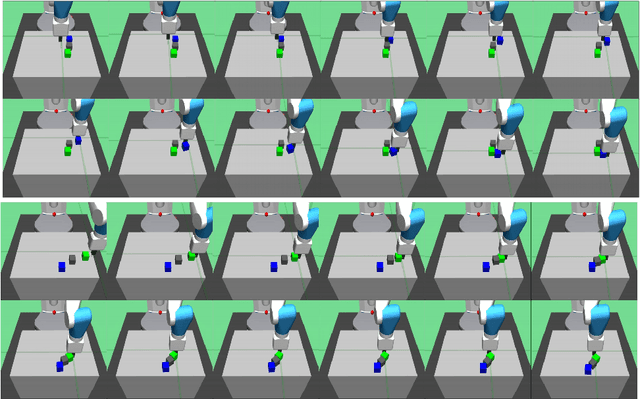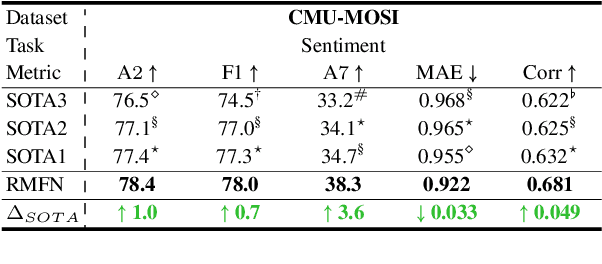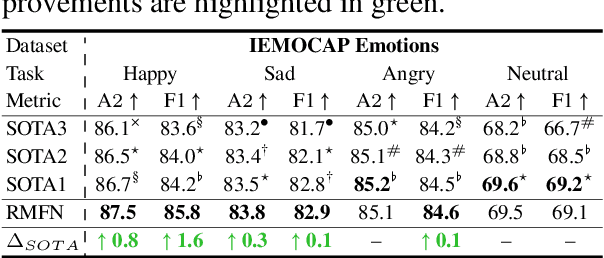Ziyin Liu
BlockPuzzle - A Challenge in Physical Reasoning and Generalization for Robot Learning
Nov 30, 2018



Abstract:In this work we propose a novel task framework under which a variety of physical reasoning puzzles can be constructed using very simple rules. Under sparse reward settings, most of these tasks can be very challenging for a reinforcement learning agent to learn. We build several simple environments with this task framework in Mujoco and OpenAI gym and attempt to solve them. We are able to solve the environments by designing curricula to guide the agent in learning and using imitation learning methods to transfer knowledge from a simpler environment. This is only a first step for the task framework, and further research on how to solve the harder tasks and transfer knowledge between tasks is needed.
Multimodal Language Analysis with Recurrent Multistage Fusion
Aug 12, 2018



Abstract:Computational modeling of human multimodal language is an emerging research area in natural language processing spanning the language, visual and acoustic modalities. Comprehending multimodal language requires modeling not only the interactions within each modality (intra-modal interactions) but more importantly the interactions between modalities (cross-modal interactions). In this paper, we propose the Recurrent Multistage Fusion Network (RMFN) which decomposes the fusion problem into multiple stages, each of them focused on a subset of multimodal signals for specialized, effective fusion. Cross-modal interactions are modeled using this multistage fusion approach which builds upon intermediate representations of previous stages. Temporal and intra-modal interactions are modeled by integrating our proposed fusion approach with a system of recurrent neural networks. The RMFN displays state-of-the-art performance in modeling human multimodal language across three public datasets relating to multimodal sentiment analysis, emotion recognition, and speaker traits recognition. We provide visualizations to show that each stage of fusion focuses on a different subset of multimodal signals, learning increasingly discriminative multimodal representations.
 Add to Chrome
Add to Chrome Add to Firefox
Add to Firefox Add to Edge
Add to Edge